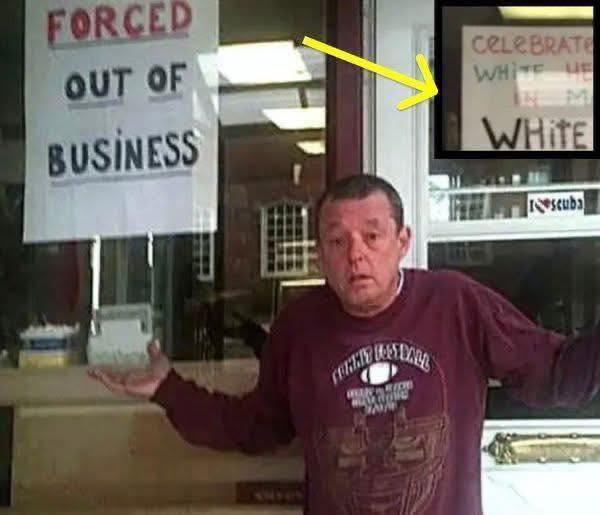Deli Owner’s “White Heritage” Sign Triggers Outrage and Shuts Down Business

In the quiet town of Flemington, New Jersey, a deli owner’s decision to display a controversial sign sparked a wave of backlash that ultimately led to the closure of his business.
Jim Boggess, the owner of Jimbo’s Deli, says he wanted to honor his cultural background when he posted a handwritten sign that read:
“CELEBRATE YOUR WHITE HERITAGE IN MARCH — WHITE HISTORY MONTH.”
But what he viewed as a celebration of heritage was received by many as offensive and racially insensitive.
Community Backlash
Among those disturbed by the sign was Bhakti Curtis, a biracial resident who interpreted the message as disrespectful toward Black History Month. Curtis noted that the design of the word “WHITE” — particularly the “T” — resembled a cross often associated with white supremacist groups like the Ku Klux Klan.
Although Curtis filed a complaint at the local police station, authorities concluded that the sign did not violate any laws and did not meet the legal definition of hate speech.
Fallout and Closure
Despite not breaking any laws, public reaction was swift. Community members criticized Boggess, and customers began to stay away. Though Boggess removed the sign after four days, the damage was done. Foot traffic dwindled, and just weeks later, he closed the deli’s doors permanently.
A Surprising Reconciliation
In a turn few expected, Boggess and Curtis eventually met face-to-face. They talked, shook hands, and took a photo together in an attempt to show that civil conversation is still possible — even when perspectives clash.
A Broader Conversation
The controversy sparked national attention and reignited discussions about freedom of expression, racial sensitivity, and the nuances of cultural pride. Some defended Boggess’s right to celebrate his heritage, while others saw his sign as tone-deaf in the context of America’s racial history.
What began as a local dispute quickly became a mirror reflecting the ongoing complexities surrounding race, identity, and free speech in America today.